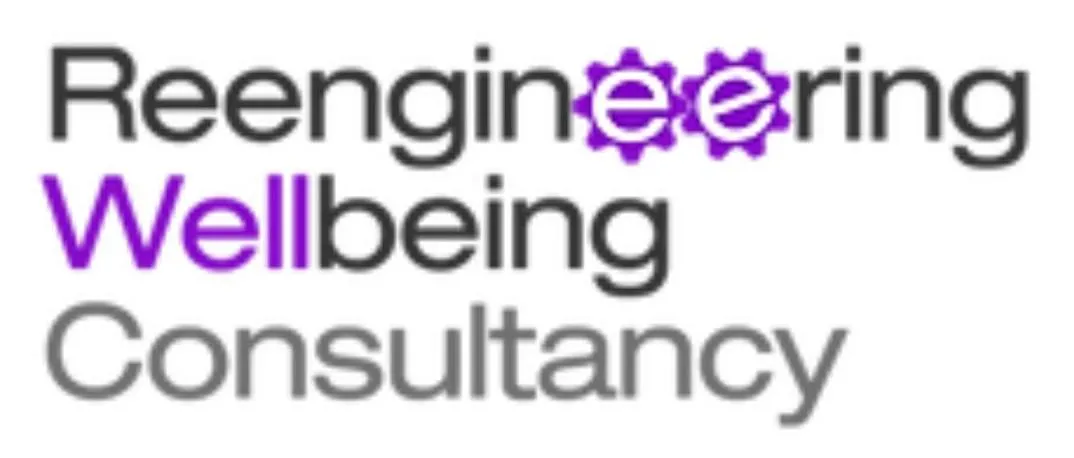Blog

Stop Trauma Bonding and Start Growth Bonding
It’s Transformational Tuesday and I want to talk about the 5 ways we rob ourselves from growing with other people.
In my journey of life, I have a lot of things become challenging experiences and for me I have learnt that connecting to others on their growth journey is way more important than connected with them to their traumatic experiences.
Perhaps because I am a Mental Health Professional this comes a little bit easier to me, but in my own personal life, I’ve had to exercise the same skill set so I could actually have true friendships rather than just trauma bond and rescue the individuals around me.
Perry Nickeltson from stop chasing pain states, “It’s not the information that changes you, it’s the meaning of the information.” When we enter into our friendships or we are meeting new people, we are always quick to tell people what they should do to be a better person rather than find out what is currently working for them.
The minute you begin telling people what’s wrong with them, you are getting ready to have a trauma bonding experience, that may never change into a growth experience.
So first let’s explore what trauma bonding is…
Trauma bonding was first described as an emotional attachment that are emotional bonds with an individual (and sometimes, with a group) that arise from a recurring, cyclical pattern of abuse perpetuated by intermittent reinforcement through rewards and punishment.
Establishment, Power Imbalance, Intermittent Reinforcement, Maintenance are all components of TB that we don’t even recognize we are experiencing in our daily friendships.
But let me just say our most destructive trauma bonds are in what we call our friendships and our support groups. After coming from our family of origin and homes, we take these patterns into our main interpersonal interactions and they become part of our norm.

So here are the 5 ways in which we rob ourselves from growing with other people.
We try to fix people’s problem rather than give them a chance to regulate their own challenges
Our conversations are consistently rooted in drama and traumatic experiences.
We are fearful to share our current growth experience.
We only celebrate societal milestones- the trauma, birthdays, graduations, marriages, births, holidays (never the small wins)
We isolate when we are experiencing a major challenge and return to friendship after we have gone through the challenges.
There is a sense that you need this person to be in your life to be okay, and when you step out of that comfort zone of fixing, pretending, constantly assessing, the rewards are few and have a tone of sarcasm and misbelief.
WE ARE CONSISTENTLY ROBBING OURSELVES OF PEOPLE’S GROWTH….
Let’s take a deeper dive in the four components of Trauma Bonding.
ESTABLISHMENT
We establish these relationships, we get friendly with people really quickly, do everything together and just when we think things are going to be great in the friendship, we are met with our first few arguments, that are now met by disbelief that the person could do something like that to you.
You withdraw, of course you want to protect your peace, but the withdrawal is not about protecting it’s the poor interpersonal pattern you learnt from your family of origin of never confronting or engaging with what made you uncomfortable in the first place.
POWER IMBALANCE AND INTERMITTENT REINFORCEMENT
So, you perpetuate a cycle of then returning to the friendship to enjoy the regular celebrations of life, you never talk about what you never talk about and depending on who’s celebrating at the time, the Power Imbalance starts to show. We are slowly just doing one thing or supporting one person all of the time. “It’s always about them”. The willingness to repeat this without ever having a dialogue is trauma bonding in itself. You are almost scared to rock the boat and establish the parameters of your friendship. But you simply can’t as you never navigated the parameters of your own family of origin interpersonal relationships.
MAINTENANCE.
In trauma bonding, we love the status quo of relationships. Being able to say that you had this friend or this support group for an extending period of time. However, within this time, the people still don’t know anything about you in your struggles or your challenges in life. They have never visited your home, hanging out together almost never includes enriching conversations, but just memories that you’ve done together. You check in ever so often just to make ensure that the person is not growing to far without your permission. Our tones reek disgust simply because they have not told us about their growth, but we stick around just to ensure that we don’t miss out on anything new, so we could be the first to shout it from the mountain top…. ‘that’s my friend.’
LET’S HEAL
Trauma bonding is definitely a complex set of interpersonal interactions that most people are engaging with without even recognizing. However, I believe that as we get older, we can pay more attention to the way we are being fed, like and received in our relationship. Establishing how much we share and how much we give also determines the value of the bond.
Today start assessing whether or not you want to growth or trauma bond with people. At some point our perception of growth much change from just being their when someone is having a hard time in life, and being present for when they have navigated the hardest season of their life and are ready to play and live life full out.
Always Dr Jay.

Stop Trauma Bonding and Start Growth Bonding
It’s Transformational Tuesday and I want to talk about the 5 ways we rob ourselves from growing with other people.
In my journey of life, I have a lot of things become challenging experiences and for me I have learnt that connecting to others on their growth journey is way more important than connected with them to their traumatic experiences.
Perhaps because I am a Mental Health Professional this comes a little bit easier to me, but in my own personal life, I’ve had to exercise the same skill set so I could actually have true friendships rather than just trauma bond and rescue the individuals around me.
Perry Nickeltson from stop chasing pain states, “It’s not the information that changes you, it’s the meaning of the information.” When we enter into our friendships or we are meeting new people, we are always quick to tell people what they should do to be a better person rather than find out what is currently working for them.
The minute you begin telling people what’s wrong with them, you are getting ready to have a trauma bonding experience, that may never change into a growth experience.
So first let’s explore what trauma bonding is…
Trauma bonding was first described as an emotional attachment that are emotional bonds with an individual (and sometimes, with a group) that arise from a recurring, cyclical pattern of abuse perpetuated by intermittent reinforcement through rewards and punishment.
Establishment, Power Imbalance, Intermittent Reinforcement, Maintenance are all components of TB that we don’t even recognize we are experiencing in our daily friendships.
But let me just say our most destructive trauma bonds are in what we call our friendships and our support groups. After coming from our family of origin and homes, we take these patterns into our main interpersonal interactions and they become part of our norm.

So here are the 5 ways in which we rob ourselves from growing with other people.
We try to fix people’s problem rather than give them a chance to regulate their own challenges
Our conversations are consistently rooted in drama and traumatic experiences.
We are fearful to share our current growth experience.
We only celebrate societal milestones- the trauma, birthdays, graduations, marriages, births, holidays (never the small wins)
We isolate when we are experiencing a major challenge and return to friendship after we have gone through the challenges.
There is a sense that you need this person to be in your life to be okay, and when you step out of that comfort zone of fixing, pretending, constantly assessing, the rewards are few and have a tone of sarcasm and misbelief.
WE ARE CONSISTENTLY ROBBING OURSELVES OF PEOPLE’S GROWTH….
Let’s take a deeper dive in the four components of Trauma Bonding.
ESTABLISHMENT
We establish these relationships, we get friendly with people really quickly, do everything together and just when we think things are going to be great in the friendship, we are met with our first few arguments, that are now met by disbelief that the person could do something like that to you.
You withdraw, of course you want to protect your peace, but the withdrawal is not about protecting it’s the poor interpersonal pattern you learnt from your family of origin of never confronting or engaging with what made you uncomfortable in the first place.
POWER IMBALANCE AND INTERMITTENT REINFORCEMENT
So, you perpetuate a cycle of then returning to the friendship to enjoy the regular celebrations of life, you never talk about what you never talk about and depending on who’s celebrating at the time, the Power Imbalance starts to show. We are slowly just doing one thing or supporting one person all of the time. “It’s always about them”. The willingness to repeat this without ever having a dialogue is trauma bonding in itself. You are almost scared to rock the boat and establish the parameters of your friendship. But you simply can’t as you never navigated the parameters of your own family of origin interpersonal relationships.
MAINTENANCE.
In trauma bonding, we love the status quo of relationships. Being able to say that you had this friend or this support group for an extending period of time. However, within this time, the people still don’t know anything about you in your struggles or your challenges in life. They have never visited your home, hanging out together almost never includes enriching conversations, but just memories that you’ve done together. You check in ever so often just to make ensure that the person is not growing to far without your permission. Our tones reek disgust simply because they have not told us about their growth, but we stick around just to ensure that we don’t miss out on anything new, so we could be the first to shout it from the mountain top…. ‘that’s my friend.’
LET’S HEAL
Trauma bonding is definitely a complex set of interpersonal interactions that most people are engaging with without even recognizing. However, I believe that as we get older, we can pay more attention to the way we are being fed, like and received in our relationship. Establishing how much we share and how much we give also determines the value of the bond.
Today start assessing whether or not you want to growth or trauma bond with people. At some point our perception of growth much change from just being their when someone is having a hard time in life, and being present for when they have navigated the hardest season of their life and are ready to play and live life full out.
Always Dr Jay.

Transformation
Honesty and transparency.

Innovation
Fresh, creative solutions.

Nurturance
Top-notch services.

FOLLOW US
COMPANY
CUSTOMER CARE
Copyright 2026. Success With Jay. All Rights Reserved.


FOLLOW US
COMPANY
CUSTOMER CARE
Copyright 2026. Success With Jay. All Rights Reserved.
